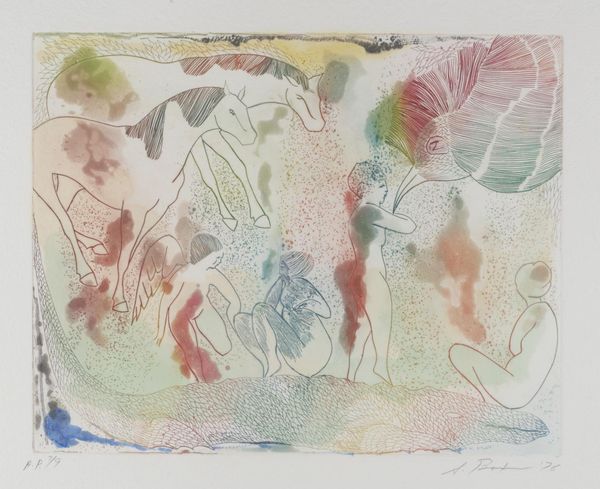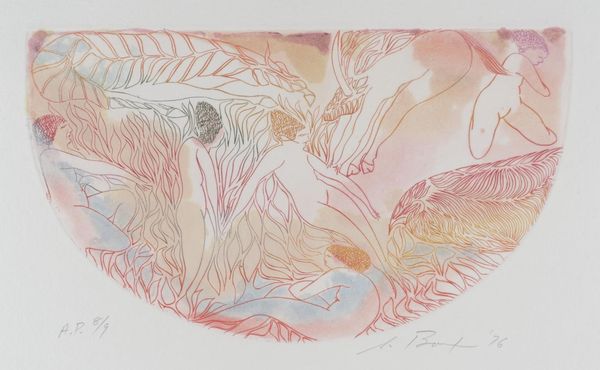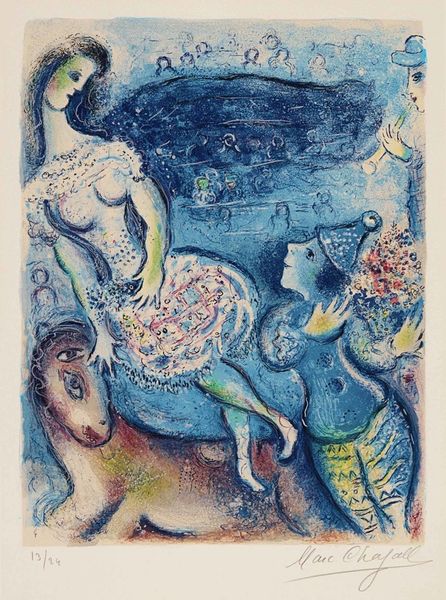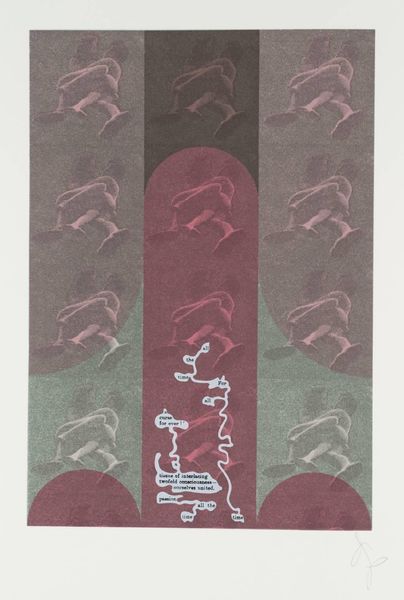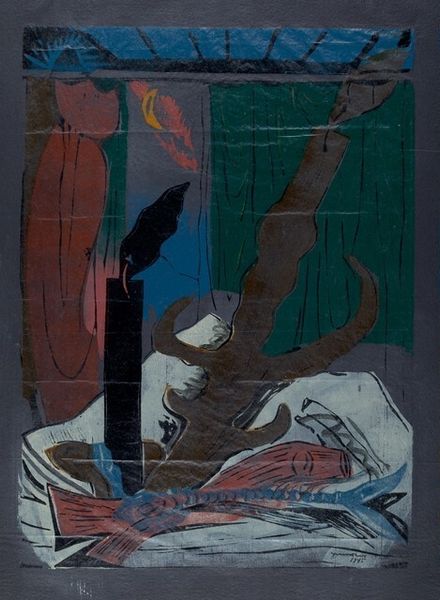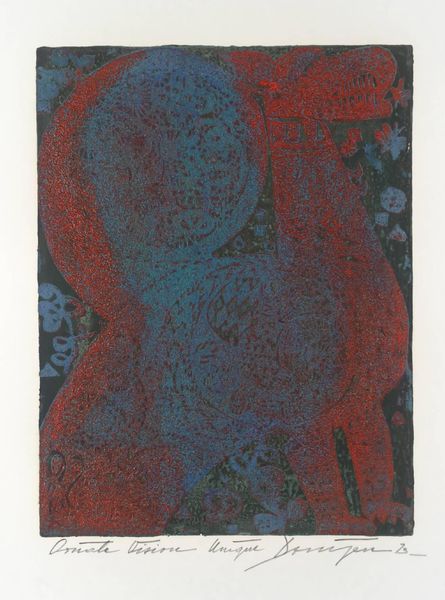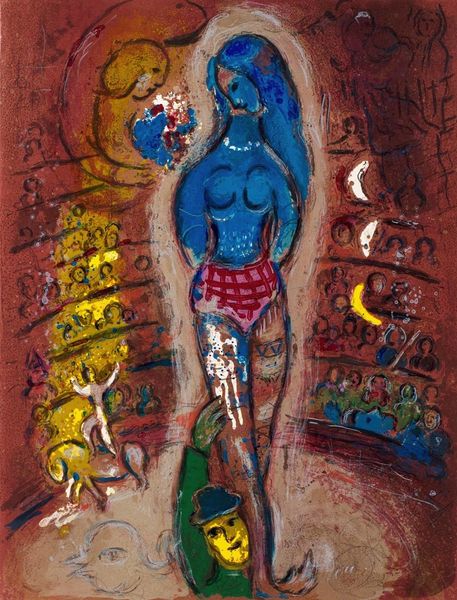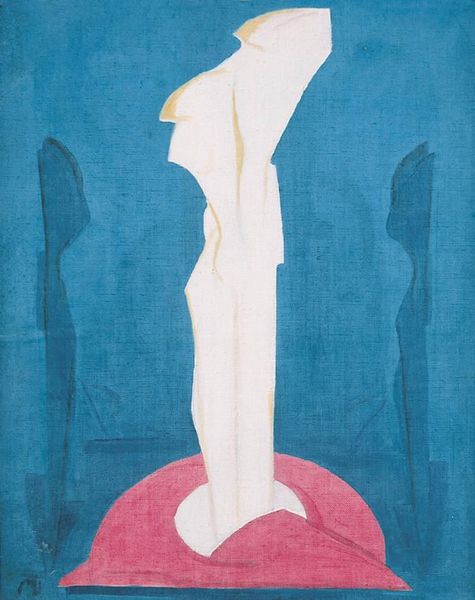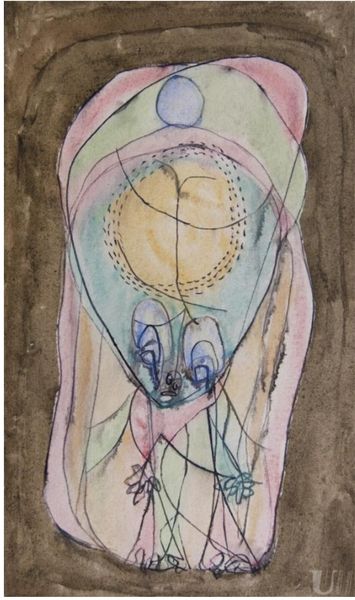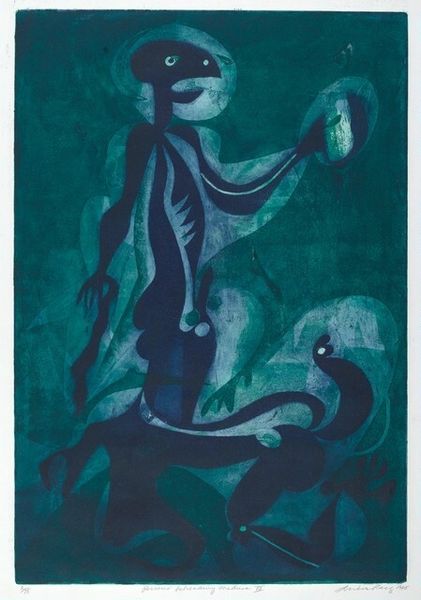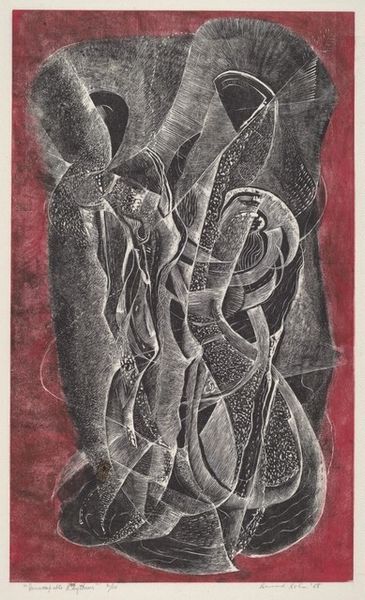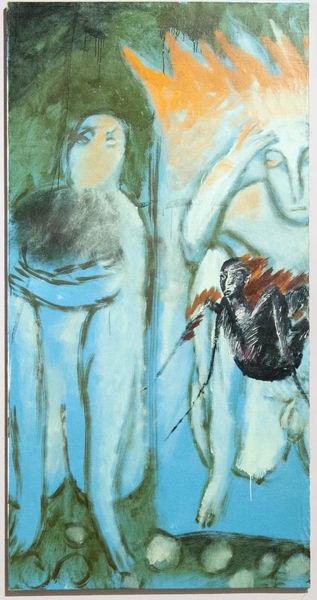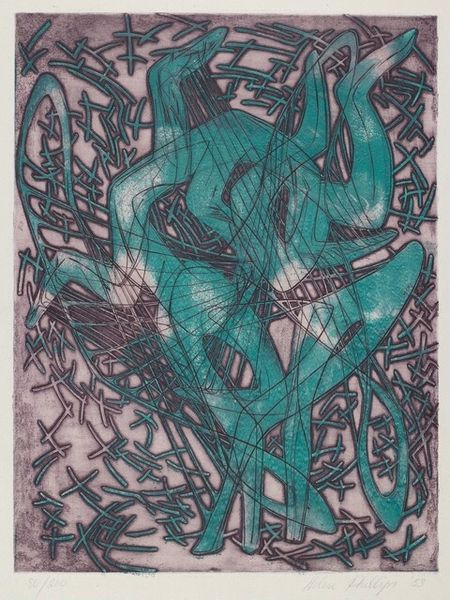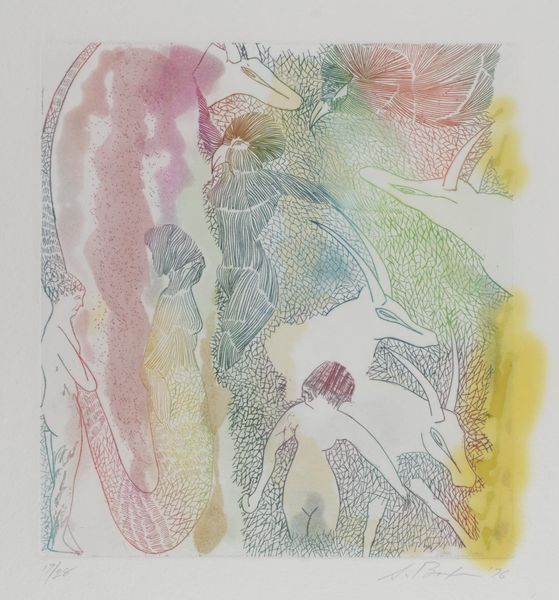
Dimensions: image: 352 x 155 mm
Copyright: © The estate of Stanley Boxer | CC-BY-NC-ND 4.0 DEED, Photo: Tate
Editor: Here we have Stanley Boxer's "Conventionofslydiscussants," a print from an unknown date, held at the Tate. It's a dreamy scene, almost like a faded memory. What strikes you most about it? Curator: Given Boxer's abstract expressionist roots, I see this as a meditation on the labor of image-making. Consider the printing process itself - the layering of colors, the physical act of pressing the plate. Does it suggest a dialogue about value, about what we deem worthy of artistic effort? Editor: That's a very different perspective than mine, I must admit. I was caught up in the imagery! Curator: But aren't the images themselves products of a material process? And doesn't that process inevitably shape our understanding and, ultimately, the value we assign to it? Editor: I see what you mean. It's like uncovering the hidden work that goes into creating the illusion. Curator: Exactly. Reflecting on the labor and materials allows a deeper appreciation, wouldn't you agree? Editor: Absolutely. I’ll be thinking about the artist's hand, and the printing press, much more closely now.
Comments
tate 10 months ago
⋮
http://www.tate.org.uk/art/artworks/boxer-conventionofslydiscussants-p12043
Join the conversation
Join millions of artists and users on Artera today and experience the ultimate creative platform.
tate 10 months ago
⋮
Stanley Boxer is best known for his large scale abstract paintings which have a rich sculptural quality produced by thick, impasto brushwork. Boxer’s paintings were championed by American modernist critic Clement Greenberg (1906-1994), famous for his insistence that painters should eliminate subject matter in their work, aiming instead for the purity of abstraction. When considered in relation to his paintings, the prints Boxer produced at Tyler Graphics between 1975 and 1979 seem somewhat of an anomaly. Over this period, he created several series of figurative works, illustrating whimsical scenes featuring animals and winged figures. Boxer had, however, been making drawings of this nature throughout his career, and he insisted they were closely connected to his abstracts, made with similar gestures and motivation.
